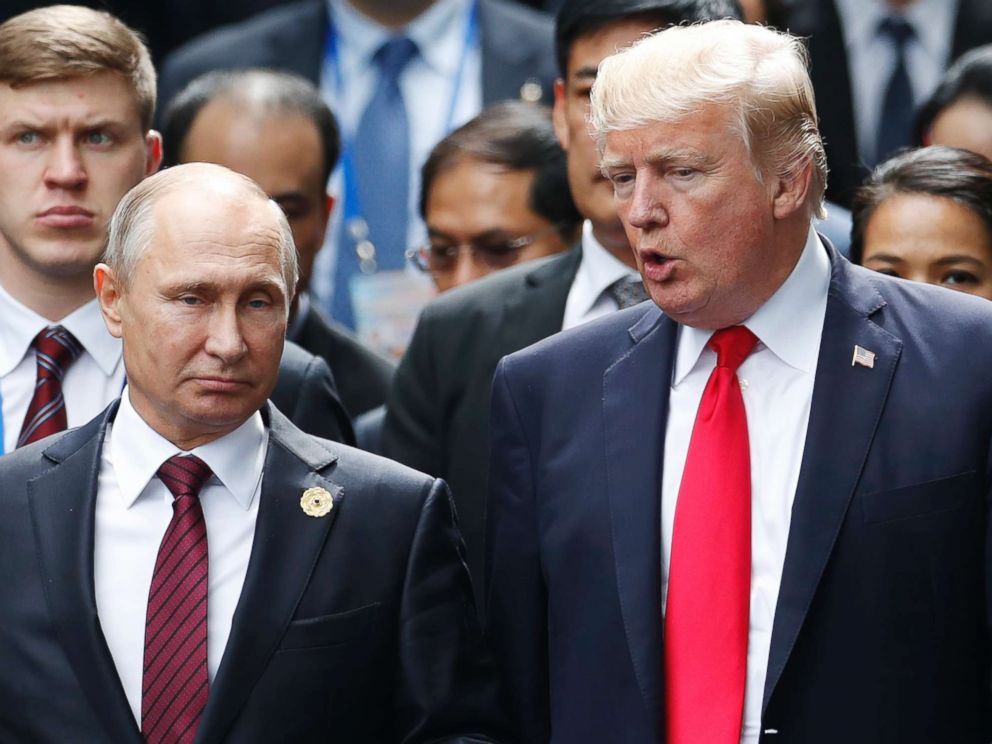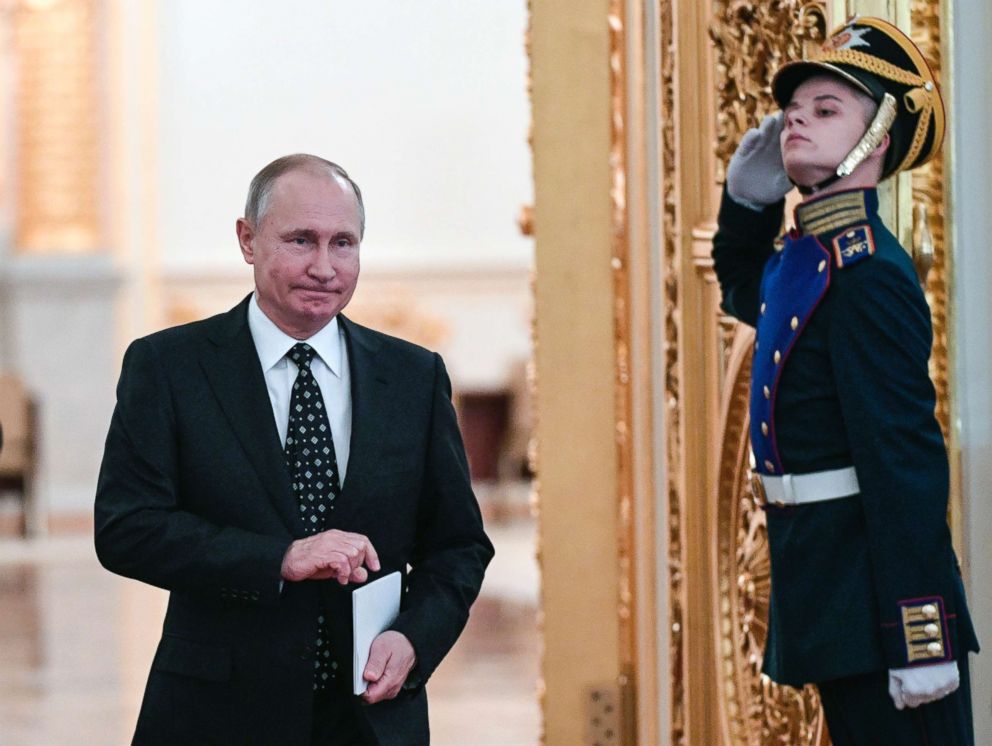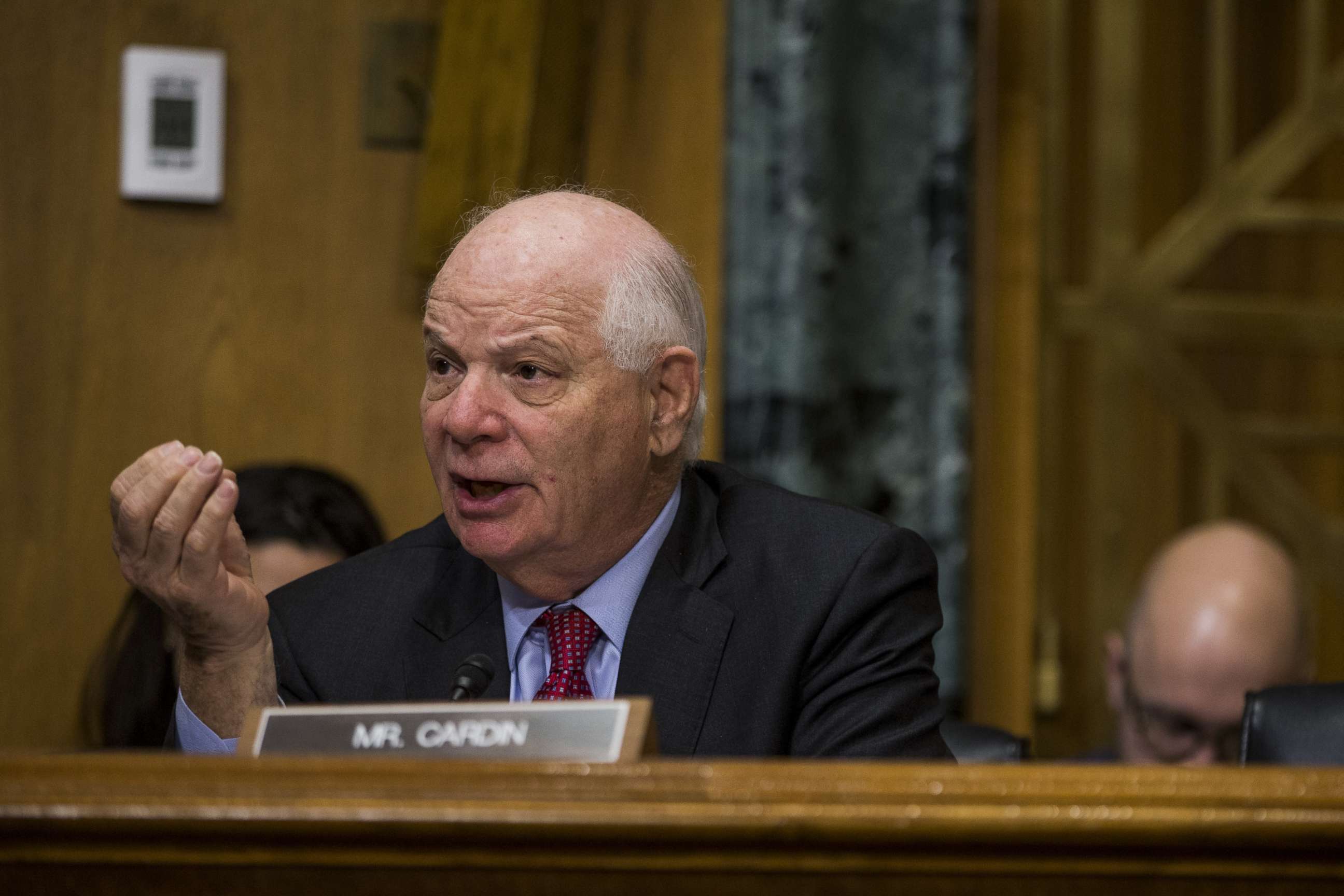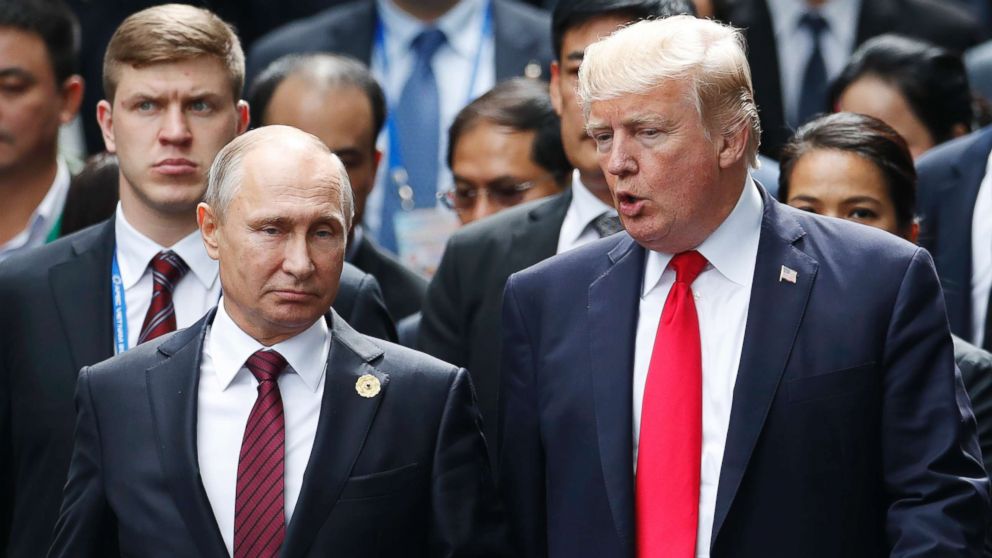New congressional report blasts Trump for ignoring Russian interference around the world
— -- President Donald Trump has ignored the threat posed by Russian President Vladimir Putin to Western democracies including the U.S., leaving a vacuum that presents a dangerous challenge to America's national security and foreign policy interests, according to a blistering new report by Democrats on the Senate Foreign Relations Committee.
"The current President of the United States has barely acknowledged the threat posed by Mr. Putin’s repeated attacks on democratic governments and institutions, let alone exercised the kind of leadership history has shown is necessary to effectively counter this kind of aggression," Sen. Ben Cardin, D-Md., the ranking member on the committee, wrote in the report's opening letter. "Never before in American history has so clear a threat to national security been so clearly ignored by a U.S. president."
The report, released Wednesday morning to the committee and the public, is the first from Congress about Russia's interference in elections over the years -- ahead of the greatly anticipated findings from the Senate Intelligence and Judiciary Committees that deal specifically with Russian meddling in the 2016 U.S. presidential election.
But according to the team that put the report together, understanding the worldwide threat from Russia and the history of its actions is key to preventing a repeat of the 2016 attempt to disrupt the U.S. election, especially ahead of congressional midterm elections later this year.

"What we saw in the 2016 election was not an isolated incident, and for anyone who thinks that the threat posed by Russia is limited to the hacking of emails or one election in America, you're missing the full story," said one Democratic staff member involved in the report's research and writing. "If you don't understand the scale and the scope of that threat and exactly how they use what we're calling this asymmetrical arsenal, you can't prevent that from happening again."
That arsenal includes full-scale military invasions and cyber attacks, but also disinformation campaigns, material support for fringe political groups, and the "weaponization" of energy resources, organized crime and corruption. The report documents Russia deploying those tools in 19 European countries as illustrative examples of what Russia is capable of doing.
The report includes charges that Putin first used these tactics at home to consolidate his grip on power, then turned to post-Soviet countries on the periphery, including aggression in Georgia and military action in Ukraine, and finally advanced to more established democracies, including his campaign to push for Brexit in the United Kingdom and foment distrust and support for far-right parties in France and Germany -- the full scope of which is still unknown, according to the report.
The document, just over 200 pages in total, was written by Democratic staff members using open-source material, inquiries of foreign governments and fact-finding missions by staffers. While it's difficult to say how much success Russia has had in its efforts, the staffers said they are calling for a full accounting in those European countries and can point to one major win for Russia -- the United States.
Russia has denied it interferes in the electoral processes of other countries, including repeated denials of meddling in the U.S. election. The U.S. intelligence agencies released a report one year ago detailing Russian interference and finding that Putin's government aimed to sow discord and distrust, defeat Democratic candidate Hillary Clinton, and elect Republican Donald Trump.
In his own public statements, Trump has waffled on whether he believes the intelligence agencies' findings that Russia interfered, initially saying electronic interference could be done by any country or even a "guy sitting on their bed who weighs 400 pounds." In November, he told reporters, "Every time [Putin] sees me, he says, 'I didn't do that,' and I really believe that when he tells me that, he means it." The next day, he walked back the comments at a press conference, saying, "As to whether I believe it or not, I’m with our agencies, especially as currently constituted."
Despite that latest affirmation, little has been done to combat the ongoing threat from Russia, by the administration's own admission.

Although Wednesday's report was shared and discussed with Republican senators and their staffs, none signed onto it. But Democratic staffers argued there was very little in the report that Republicans would disagree with, including criticism of Trump.
That includes the 10 broad recommendations the report makes for next steps the U.S. should take to push back against Russian interference abroad -- broken down into 41 individual items.
Chief among them is calling on Trump to "assert presidential leadership and launch a national response." Cardin accused Trump of standing "practically idle" in the face of Putin's aggression in several European countries and demanded that he "be clear-eyed about the Russian threat, take action to strengthen our government's response and our institutions, and -- as have other presidents in times of crisis -- mobilize our country and work with an international coalition to counter the threat."
In particular, the report calls for the creation of a new government task force -- a "high-level interagency fusion cell" that coordinates the U.S. government's response to Russian meddling abroad in a manner similar to how the National Counterterrorism Center, created in 2003 after the Sept. 11 attacks, brings together the CIA, FBI and Pentagon to tackle the terror threat.
In another parallel to combating terrorism, the report recommends a new sanctions designation for "state hybrid threat actors," like the current list of state sponsors of terrorism, to more quickly slap sanctions on a nation, including others beyond Russia, when it uses one of those "asymmetrical" tools to attack another nation's elections or critical infrastructure like power plants or internet servers.
Some of the suggestions are already floating through Congress, where there is bipartisan support for this kind of robust response to Russia -- and the report endorses those ideas, like proposed legislation to force social media companies to publish the funding sources of advertisements on their platforms or to require full disclosure of shell companies' owners and financiers when it comes to political parties, campaigns and advocacy groups.
Other tools are already at the executive branch's disposal and being actively used, including new sanctions against Russia that Congress overwhelmingly passed and Trump begrudgingly signed into law over the summer. Despite an initial delay in implementation, the administration is on track at the working level to apply the next phases, according to Congressional staffers.
The chances a president who has derided the Russian investigations will be willing to implement any of them remain dim, even by the report's authors' admissions.

"The president is who he is, and we don’t have a way of changing the president," said one staffer, but "there are ways to move forward" without him through Congress and various agencies.
After the 2016 election, how great a threat Russia poses to the 2018 U.S. elections remains unclear. Secretary of State Rex Tillerson said in an interview last Friday that there was no evidence yet Russia will meddle, but CIA Director Mike Pompeo told CBS two days later they were already doing so.
"What this report shows is that there is absolutely no way that Putin wouldn't have available to him all the set of tools -- and based on what he’s done in past, it wouldn’t make sense for he and the institutions he controls to not try to make that outcome be the best possible for him," the Democratic staffer said, although they conceded they did not have hard evidence they could share one way or another.
More importantly, they argued, the threat is bigger than the election next November.
"It's not just about what happens here," the staffer said, pointing to the past elections in Europe detailed in the report, the upcoming elections on the continent, including in Italy this March, and others around the world, from Central Asia to Latin America -- with the U.S.'s southern neighbor Mexico a primary target in 2018.




